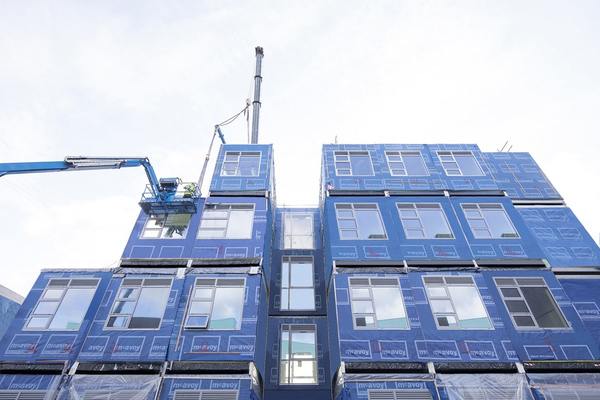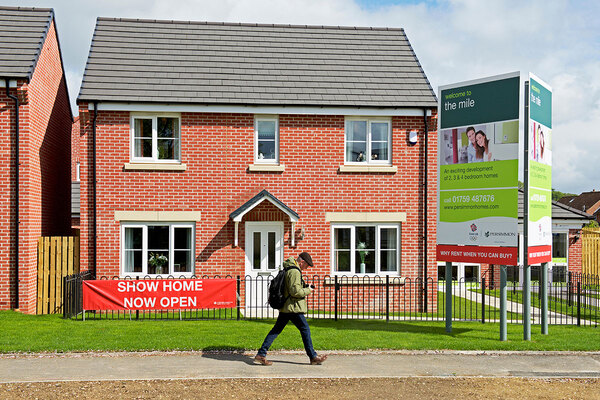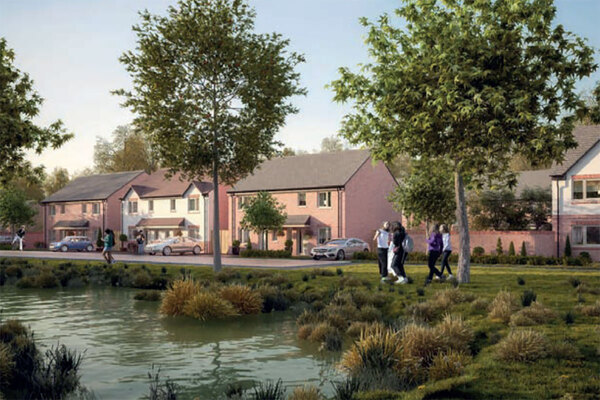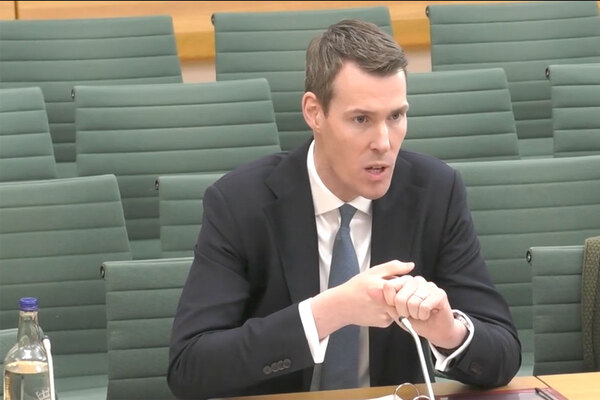 Mark Farmer
Mark FarmerMark is CEO and a Founding Director of Cast. He has over 30 years experience in construction and real estate and is a recognised ...more
Places for People’s deal could be the bolt the offsite sector needs
The recent deal between Ilke and Places for People shows the way forward for new technology in housing construction, writes Mark Farmer
For too long now, the construction industry has been defined by a lack of action and productivity. If we are to meet the government’s annual target of building 300,000 homes, then we need to not only think outside the box, but move the box entirely offsite.
In a world filled with hot air, housing providers appear to at last be showing signs of taking some responsibility for changing the way they deliver assets: L&Q has set a date of 2025 to feature modern methods of construction (MMC) in every new build, while Swan’s Essex factory has been producing modular homes from cross-laminated timber for more than a year. Home Group has also just launched the Gateshead Innovation Village to debunk the myths surrounding modular homes through evidence capture. Many other housing providers are currently reviewing strategic options behind boardroom doors to understand how MMC can work for their organisations before they dive in.
At the vanguard of innovation has been Places for People, which last week announced the UK’s biggest ever modular deal – a joint venture with Ilke Homes. Places for People will source 750 modular homes from Ilke’s Yorkshire factory. With nearly £4.5bn worth of assets, Places for People is a similar size to many FTSE 100 companies. Its decision to throw its weight behind such a deal should provide a bolt of confidence for MMC.
And it needs one. Despite a lot of talk, many are concerned by a lack of factory capacity that is capable of delivering technically accredited and mortgageable modular residential products. Factories now being created by firms such as Ilke Homes have the potential to make serious inroads into that supplier base, joining other announcements in the past three months that are likely to add at least a total of 5,000 units per annum to capacity in the short to medium term.
To put this in perspective, the existing residential modular market that is capable of being mortgaged and insured is probably only at 5,000-7,500 units per annum capacity anyway.
But this misses the point: the factories being created by firms such as Ilke Homes have the potential to train up unskilled workers from scratch. While it’s true that we have a ‘chicken and egg’ scenario of demand being needed to warrant factory investment, we need to build capacity. Activity in recent months appears to be the beginning of a longer-term uptick in sustainable investment in the modular sector. Homes England’s support – through direct co-investment, land disposal procurement decisions or influence with housing providers – is also starting to make itself felt and is confirming the agency’s key role as an enabler of industry modernisation.
Partnerships with global players – such as Sekisui House, which penned a modular deal with Homes England and Urban Splash – will also make serious contributions by driving international best practice technology transfer that is capable of delivering high quality homes, in terms of aesthetics, customisation and technical robustness.
“Places for People is a similar size to many FTSE 100 companies. Its decision to throw its weight behind such a deal should provide a bolt of confidence for MMC”
Indeed, Ilke’s links with Algeco Group, one of the world’s largest modular suppliers with more than 200,000 modular space and storage units, will make similar headways for boosting the UK’s modular supply. It gives Ilke Homes access to a significant pool of global market intelligence and technical expertise, while also driving employment across a UK-based supply chain.
Clearly, the big challenge here is to get investment flowing into factories underpinned by demand. This will enable processes to be refined and digital and manufacturing strategies matured responsibly in tandem with visible pipeline. Rationalising the process has to come first and we need to be realistic about the time it will take. The joint venture between Ilke Homes and Places for People sets the benchmark other developers must follow, but it’s only the tip of the iceberg.
This is about procuring a scale-led programme of work, not competitively procuring on a project-by-project basis, often with planning designs already committed and selecting on just the lowest price. Best value has to mean something different in procurement terms to ‘cheapest’ if innovation is to take off in the public sector. That doesn’t mean that modular has to cost more – Ilke has shown there is an ability to deliver competitively in areas of low traditional build costs and more scale will only help the capex comparison. The real benefits case, though, is led by speed, quality and certainty. These should all be much greater considerations in procurement.
Pooling resources together is central to any ambition of mass-market offsite manufacturing and, in turn, to generating the quality capacity base and associated confidence of sufficient MMC-led homes that we have needed for so long. Being able to engineer homes like we build cars is the nirvana: a single chassis that can be easily remodelled for any number of products at a range of price points. That is where we must be headed and pioneers such as Places for People’s David Cowans and Berkeley’s Tony Pidgley have seen that.
Yet with their scale and stability, housing providers must be willing to show innovation in their procurement. They have the heft to make a seismic difference more quickly than any single private company. Rather than continue with piecemeal procurement, they need to think about partnerships, collaborative R&D, testing, data capture and outcome-led commercial relationships. The Ilke Homes deal is a lesson in how housing providers can create true additionality through strategic partnership.
Strategic partnerships will need to become the norm if we are to build at the required rate. This will mean tearing up the rule book and looking across the competitive divide. Homes England’s co-investment with private developers and housing providers demonstrates the government’s willingness to do this.
“Given the market turmoil now being felt across the housebuilding sector, wider engagement across housing providers – particularly given their buying power and potential to share and scale their cost base – could reap huge rewards for government, industry and the housing occupier alike”
Support from the housing minister and Homes England chair for the Places for People/Ilke deal has been gushing, and underlines Homes England’s strategic vote of confidence in modular housing through its own deal. Taking a fresh and entrepreneurial approach has enabled the government to help accelerate growth without being confined by the usual red tape and bureaucracy as has so often been the case.
There is a great need for homes of every tenure but with affordable housing a growing political priority, housing providers should be looking at this deal as a guiding light for how they should be evolving against a backdrop of an increasingly dysfunctional traditional construction market.
Given the market turmoil now being felt across the housebuilding sector, wider engagement across housing providers – particularly given their buying power and potential to share and scale their cost base – could reap huge rewards for government, industry and the housing occupier alike.
Mark Farmer, chief executive, Cast, and, author, the Farmer Review
Future of Work Festival
New for 2019, Inside Housing’s Future of Work Festival will bring together HR and organisational development professionals from the housing sector to discuss and explore the challenges of how to successfully evolve towards the working environment of the future.
Seize this opportunity to rethink your workforces and workplaces by reconsidering the roles of individuals, organisations, automation technology and how society will approach work.
Assess and benchmark your business strategy with the leaders in the housing sector:
- Defining the Future of Work: what does it look like, what will be the implications, how do you rethink your workforce strategy?
- How to embed Electronic Data Interchange into your workforce, attract the widest pool of talent, be authentic and innovative, keep your workforce happy and productive, and position your brand
- Identifying, assessing and closing the skill gaps: what skills will be required in the future and how do you prepare for the undefined?
- Appealing to and maintaining a multi-generational workforce: how to address differing career aspirations, expectations, behaviours and values
- How best to implement the best tech, for example, big data, artificial intelligence, automation, blockchain and the Internet of Things. How will this change workplace skills and wages? How do you evolve towards a ‘STEMpathetic’ workforce?
- Providing your HR and OD department with the right skills and toolkits to revise talent, organisational structures and business models. Be social and environmentally friendly, and data driven – investing in disruptive tech, skills training and ethical use of tech
- Promoting well-being and employee experience
- Introducing training and learning as part of the career path
- Embracing agile working – understanding how flexible and alternative working arrangements can boost productivity
The festival will take place on 17 September, at Westminster Bridge, County Hall in London.












